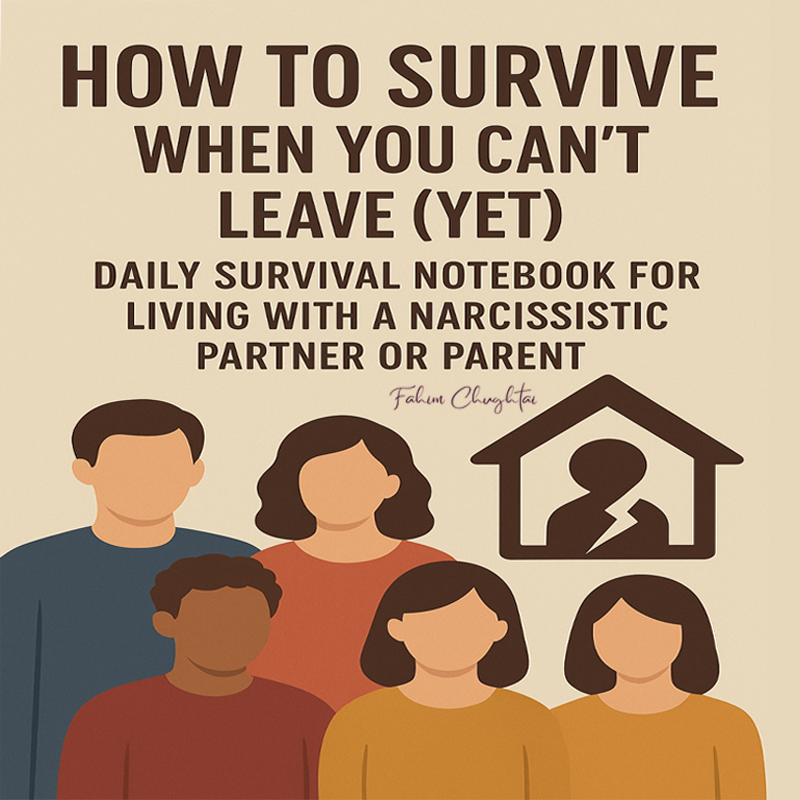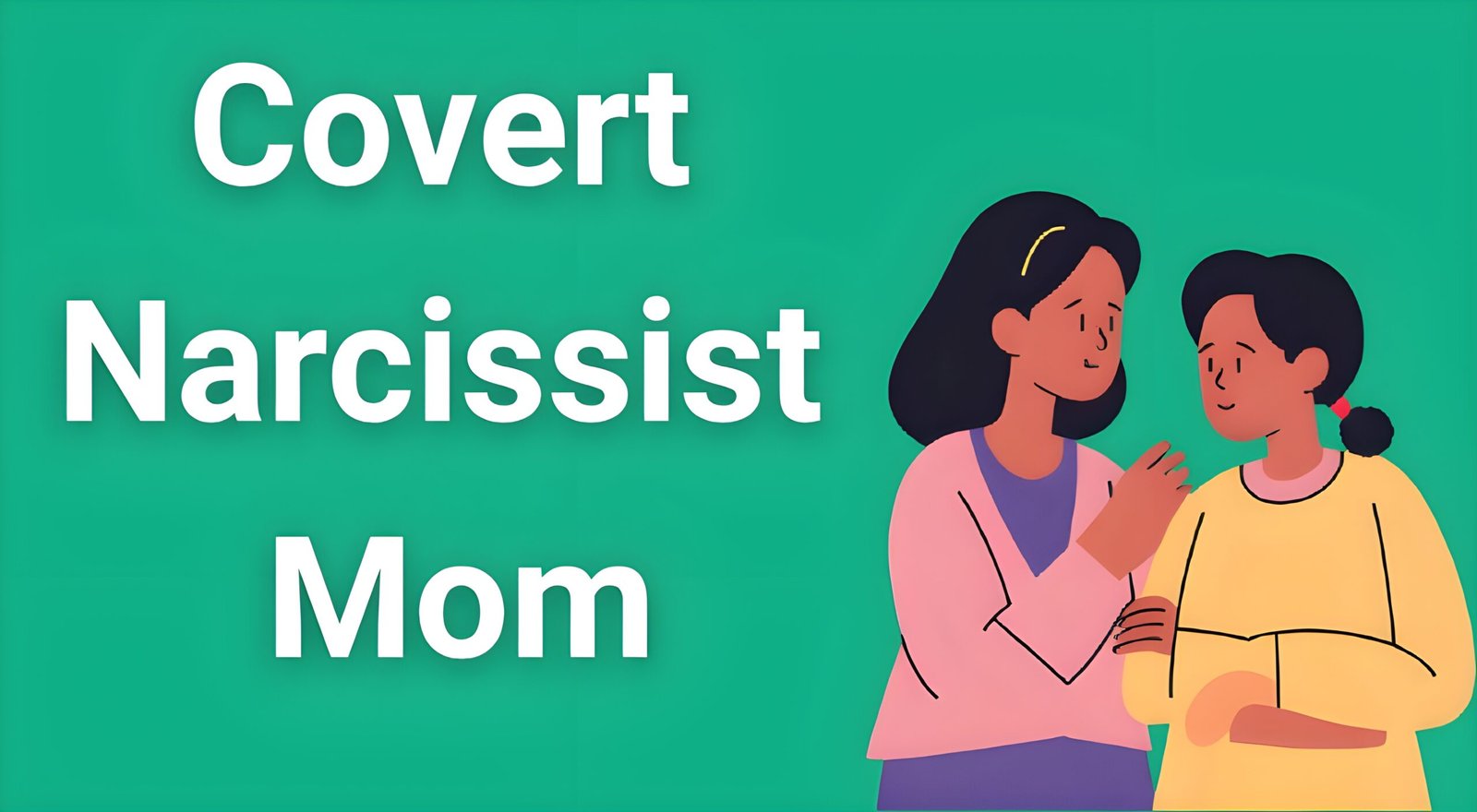Does your mother make you feel crazy while appearing perfectly normal to everyone else? Do you find yourself constantly apologizing, walking on eggshells, and questioning your own memories after interactions with her? If you’re nodding your head, you might be dealing with a covert narcissist mom—a master manipulator who hides her toxic behavior behind a mask of martyrdom and subtle control.
- Understanding Covert Narcissism in Mothers
- The 12 Hidden Signs of a Covert Narcissist Mom
- The Devastating Impact on Daughters
- Breaking the Trauma Bond: Why It’s So Hard to Leave
- The Science Behind Covert Narcissistic Abuse
- Practical Steps for Healing and Recovery
- Protecting Yourself: Strategies for Different Situations
- Working with Professionals: Getting the Right Help
- Rebuilding Your Life: From Survival to Thriving
- Frequently Asked Questions
- Conclusion: Your Journey to Freedom Starts Now
Unlike the obviously self-absorbed overt narcissist, a covert narcissist mother operates in the shadows, making her behavior incredibly difficult to identify and even harder to explain to others. This comprehensive guide will help you understand the hidden signs, recognize the devastating impact on your mental health, and most importantly, find a path toward healing and freedom.
Understanding Covert Narcissism in Mothers
A covert narcissist mom differs significantly from the stereotypical narcissistic parent who demands constant attention and praise. Instead, she presents herself as selfless, caring, and often victimized by life’s circumstances. This facade makes her manipulation particularly insidious because it appears to come from a place of love and concern.
The term “covert” refers to the hidden nature of her narcissistic traits. While she still possesses the core characteristics of narcissistic personality disorder—grandiosity, lack of empathy, and need for admiration—these traits manifest in subtle, passive-aggressive ways that leave you feeling confused and emotionally drained.
Am I Dealing With a Covert Narcissist — or Just Toxic Behavior?
Research shows that covert narcissism often overlaps with depression, anxiety, and victim mentality, making these mothers appear vulnerable rather than threatening. This vulnerability becomes a weapon they use to manipulate their children into meeting their emotional needs while neglecting the child’s own psychological development.
The 12 Hidden Signs of a Covert Narcissist Mom
1. The Professional Victim
Your covert narcissist mom constantly positions herself as the victim in every situation. She shares elaborate stories about how others have wronged her, how difficult her life has been, and how much she’s sacrificed for everyone else. This victim narrative serves multiple purposes: it garners sympathy, deflects responsibility, and makes you feel guilty for having your own problems.
When you try to share your struggles, she quickly redirects the conversation back to her suffering. Her pain always seems more significant than yours, leaving you feeling invalidated and unheard.
2. Emotional Guilt-Tripping Master
The phrase “After everything I’ve done for you” is practically tattooed on your brain. Your covert narcissist mom weaponizes guilt like a precision instrument, making you feel responsible for her happiness, her sacrifices, and her emotional state. This guilt-tripping creates an emotional prison where you’re afraid to pursue your own goals or set boundaries because it might “hurt” her.
3. Conditional Love and Affection
Love from a covert narcissist mom comes with strings attached. Her affection is contingent on your behavior, achievements, or ability to make her look good to others. When you please her, she’s warm and caring. When you disappoint her or assert independence, the affection disappears, leaving you desperately trying to earn it back.
4. Passive-Aggressive Communication
Instead of direct confrontation, your covert narcissist mom communicates through passive-aggressive comments, silent treatments, and subtle digs. She might say things like “I guess I’ll just be alone again” when you make plans with friends, or “That’s nice, dear” with a tone that clearly indicates it’s anything but nice.
5. Reality Distortion and Gaslighting
Perhaps the most damaging trait is her ability to make you question your own reality. She “forgets” conversations that made her look bad, denies saying hurtful things, and reframes past events to cast herself in a better light. This constant reality distortion makes you doubt your own memories and perceptions.
6. Emotional Enmeshment and Boundary Violations
Your covert narcissist mom struggles to see you as a separate individual with your own needs and desires. She may involve you in adult problems, share inappropriate details about her relationships, or expect you to be her emotional caretaker. Boundaries are seen as rejection rather than healthy independence.
7. Subtle Competition and Comparisons
She compares you to other children, siblings, or even herself at your age—always in a way that makes you feel inadequate. This comparison game is designed to keep you striving for her approval while maintaining her position as the superior one in the relationship.
8. Playing Favorites Among Children
If you have siblings, your covert narcissist mom likely has a “golden child” and a “scapegoat.” The roles may shift depending on her current needs, but this dynamic creates competition and resentment among siblings while keeping her in control.
9. Emotional Withholding and Inconsistency
Your emotional needs were often met with indifference or minimal response. When you sought comfort, validation, or celebration of your achievements, she might have responded with phrases like “That’s nice” without genuine enthusiasm or interest.
10. Undermining Your Confidence
Through subtle criticisms disguised as “helpful suggestions” or “concern,” your covert narcissist mom systematically undermines your confidence. She might question your decisions, point out potential problems with your plans, or remind you of past failures when you’re trying something new.
11. Financial and Practical Control
She may use money, housing, or other practical support as leverage to maintain control over your decisions. This financial enmeshment makes it difficult to establish independence and keeps you dependent on her approval and support.
12. Triangulation and Information Gathering
Your covert narcissist mom involves third parties in your relationship, sharing private information about you with others while positioning herself as the concerned parent. She may also pump family members for information about your life, creating a web of surveillance and control.
The Devastating Impact on Daughters
Growing up with a covert narcissist mom creates specific psychological patterns that can persist well into adulthood. Understanding these impacts is crucial for recognizing how deeply this relationship has affected your development and mental health.
Chronic Self-Doubt and Decision Paralysis
After years of having your thoughts, feelings, and perceptions questioned, you’ve likely developed chronic self-doubt. You may find yourself second-guessing every decision, seeking excessive validation from others, or feeling paralyzed when faced with important choices.
Hypervigilance and Anxiety
Living with a covert narcissist mom requires constant monitoring of her moods and reactions. This hypervigilance often continues into adulthood, leaving you anxious in relationships and overly sensitive to others’ emotional states.
Difficulty with Boundaries
If your boundaries were consistently violated or dismissed as children, you may struggle to identify and maintain healthy boundaries in adult relationships. You might find yourself people-pleasing, over-giving, or feeling guilty when you try to say no.
Trauma Bonding and Attachment Issues
The inconsistent pattern of love and rejection creates what psychologists call a trauma bond—an intense emotional connection born from cycles of abuse and affection. This bond can make it incredibly difficult to maintain no-contact or low-contact boundaries with your covert narcissist mom, even when you intellectually understand the relationship is harmful.
Imposter Syndrome and Low Self-Worth
Constant criticism and conditional love often result in deep-seated feelings of inadequacy. You may achieve external success but still feel like a fraud, waiting for others to discover that you’re not as capable as they think.
Relationship Patterns
You might find yourself attracted to partners who recreate familiar patterns from your childhood—perhaps partners who are emotionally unavailable, critical, or controlling. Alternatively, you might struggle with intimacy altogether, finding it difficult to trust or fully open up to others.
Breaking the Trauma Bond: Why It’s So Hard to Leave
The relationship between a daughter and her covert narcissist mom often involves what psychologists call a trauma bond—a psychological connection that develops through repeated cycles of abuse and affection. Understanding this bond is crucial because it explains why you might feel unable to cut ties despite knowing the relationship is harmful.
Trauma bonds function similarly to addiction in the brain. The unpredictable pattern of criticism followed by affection creates a powerful neurochemical response. Your brain becomes addicted to the relief and validation you feel during the “good” moments, making you more likely to tolerate or excuse the harmful behavior.
This bond is strengthened by several factors:
Intermittent Reinforcement: Just like a slot machine, the unpredictable nature of when you’ll receive “love” from your covert narcissist mom makes that love more powerful and addictive.
Isolation: She may have systematically isolated you from other support systems, making her approval feel essential for your emotional survival.
Financial Dependence: Economic control can make leaving feel impossible, especially if she’s positioned herself as your primary source of financial security.
Guilt and Obligation: The constant messaging about her sacrifices and your ingratitude creates a sense of debt that feels impossible to repay.
Fear of Abandonment: Having been threatened with withdrawal of love throughout your childhood, the prospect of permanently losing her attention can feel terrifying.
The Science Behind Covert Narcissistic Abuse
Recent neuroscience research has revealed how growing up with a covert narcissist mom actually changes your brain structure and function. Chronic exposure to gaslighting, emotional invalidation, and unpredictable love affects the development of your stress response system, emotional regulation, and self-awareness.
The constant state of hypervigilance required to navigate your mother’s moods and reactions keeps your nervous system in a perpetual state of fight-or-flight. Over time, this chronic stress can lead to anxiety disorders, depression, autoimmune issues, and other health problems.
Understanding the neurological impact helps explain why simple willpower isn’t enough to break free from these patterns. Your brain has been literally rewired to expect and tolerate unhealthy relationship dynamics.
Practical Steps for Healing and Recovery
Recovery from covert narcissistic abuse is a process that requires patience, self-compassion, and often professional support. Here’s a roadmap for beginning your healing journey:
1. Validate Your Experience
The first step in healing is acknowledging that your experience is real and valid. Covert narcissistic abuse is designed to make you question your perceptions, so recognizing the truth of your situation is both crucial and challenging.
2. Education and Understanding
Learning about narcissistic personality disorder, trauma bonding, and the specific impacts of covert abuse helps you understand that the problems in your relationship aren’t your fault. Knowledge becomes power when you can identify manipulation tactics as they happen.
3. Document Your Reality
Start keeping a journal of interactions with your covert narcissist mom. Record what was said, how it made you feel, and any gaslighting attempts. This documentation helps counteract the reality distortion that’s been imposed on you.
4. Build a Support Network
Isolation is one of the narcissist’s most powerful tools. Begin building relationships with people who support and validate your experiences. This might include therapy, support groups, or trusted friends who understand narcissistic abuse.
5. Practice Boundary Setting
Start with small boundaries and gradually work up to larger ones. This might begin with not answering every phone call immediately or choosing not to engage in certain topics of conversation.
6. Develop Your Own Identity
After years of enmeshment, you may struggle to know who you are apart from your mother’s expectations and demands. Spend time exploring your own interests, values, and goals without considering her potential reactions.
7. Address Trauma Responses
Work on healing the trauma responses that developed as survival mechanisms. This might include anxiety, people-pleasing, perfectionism, or difficulty with emotional regulation.
For many daughters of covert narcissist mothers, professional support is essential for navigating this complex healing process. A therapist who understands narcissistic abuse can help you develop specific strategies for your situation and support you through the challenging work of rebuilding your sense of self.
Protecting Yourself: Strategies for Different Situations
Depending on your life circumstances, your approach to dealing with your covert narcissist mom will vary. Here are strategies for different situations:
If You’re Still Living at Home
When you can’t physically leave yet, focus on emotional protection and planning for future independence. Create mental boundaries by recognizing manipulation tactics as they happen. Build a support network outside the home and work on developing skills and resources that will eventually allow you to leave.
If You’re an Adult with Children
Protecting your children becomes a priority when dealing with a covert narcissist grandmother. She may attempt to manipulate your children, undermine your parenting, or create loyalty conflicts. Establish clear boundaries about her interactions with your children and be prepared to limit contact if necessary.
If You’re Considering No Contact
No contact is a valid choice for protecting your mental health, but it requires careful planning and strong support systems. Consider the practical implications, prepare for potential backlash, and ensure you have emotional support for the difficult feelings that may arise.
If You Choose Limited Contact
Some people find that structured, limited contact works better for their situation. This might involve only communicating about specific topics, limiting visit duration, or having all interactions in public places.
Working with Professionals: Getting the Right Help
Not all therapists understand narcissistic abuse, so it’s important to find someone with specific experience in this area. Look for therapists who are familiar with trauma bonding, Complex PTSD, and the specific impacts of covert narcissistic abuse.
A qualified professional can help you:
- Process the complex emotions around your relationship with your mother
- Develop strategies for managing contact or no-contact decisions
- Work through trauma responses and build healthier coping mechanisms
- Rebuild your sense of identity and self-worth
- Navigate the practical challenges of establishing independence
For those seeking immediate clarity about their situation, a comprehensive analysis from a narcissistic abuse specialist can provide valuable insights into your specific relationship dynamics and help you understand exactly what you’re dealing with.
Still Living With Them? You’re Not Helpless.

Rebuilding Your Life: From Survival to Thriving
Recovery from covert narcissistic abuse isn’t just about surviving—it’s about reclaiming your life and building the relationships and experiences you deserve. This process involves several key areas:
Developing Authentic Relationships
As you heal, you’ll become better at identifying healthy vs. unhealthy relationship patterns. You’ll learn to trust your instincts, communicate your needs clearly, and maintain appropriate boundaries.
You’ve Seen the Patterns. Now Break the Bond.
Rediscovering Your Voice
After years of having your thoughts and feelings dismissed, learning to trust and express your own opinions takes practice. Start with low-stakes situations and gradually build your confidence in speaking your truth.
Creating New Family Traditions
If you have or plan to have children, you have the opportunity to create the kind of family environment you wish you had experienced. This might involve establishing new traditions, communication patterns, and ways of showing love and support.
Professional and Personal Growth
With the weight of constant criticism and control lifted, many people find they’re able to pursue goals and dreams they had previously felt incapable of achieving. Give yourself permission to explore new interests and possibilities.
Frequently Asked Questions
Q: How do I know if my mother is a covert narcissist or just difficult?
A: The key difference lies in patterns of behavior and the impact on your mental health. A covert narcissist mom consistently prioritizes her needs over yours, shows little genuine empathy, and leaves you feeling confused and emotionally drained after interactions. The behavior is systematic rather than occasional.
Q: Can a covert narcissist mom change with therapy?
A: While personality disorders can be treated, individuals with narcissistic traits rarely seek treatment because they don’t believe they have a problem. Even when they do attend therapy, progress is typically minimal because they often manipulate the therapeutic process.
Q: How do I protect my children from their narcissistic grandmother? A: Set clear boundaries about her interactions with your children, supervise visits, and watch for signs that she’s beginning to manipulate them. Trust your instincts about limiting contact if necessary—your children’s emotional safety is more important than maintaining family peace.
Q: Is it normal to feel guilty about limiting contact with my mother?
A: Absolutely. Guilt is a normal response, especially given the years of conditioning that made you feel responsible for her emotions. The guilt often lessens as you experience the peace and clarity that comes with boundaries.
Q: How long does it take to heal from covert narcissistic abuse?
A: Healing is a process rather than a destination, and the timeline varies for everyone. Many people begin feeling relief within weeks of establishing boundaries, but deeper healing work around identity and relationships can take months or years.
Q: What if other family members don’t understand or support my decision to limit contact?
A: This is common because covert narcissists are skilled at maintaining their public image. Focus on your own healing rather than trying to convince others. Those who truly support you will respect your decisions even if they don’t fully understand them.
Conclusion: Your Journey to Freedom Starts Now
Recognizing that your mother is a covert narcissist can be both devastating and liberating. While it’s painful to acknowledge that the person who should have been your first source of love and security was actually a source of psychological harm, this recognition is also the first step toward freedom.
Your covert narcissist mom’s treatment of you was never a reflection of your worth or value as a person. You deserved unconditional love, validation, and support—and you still deserve these things in your adult relationships.
The journey of healing from covert narcissistic abuse is challenging but absolutely possible. Thousands of survivors have successfully broken free from these toxic patterns and gone on to build fulfilling, authentic lives. You can too.
Remember that seeking help is a sign of strength, not weakness. Whether through therapy, support groups, or educational resources, professional guidance can accelerate your healing and help you avoid common pitfalls in the recovery process.
Your freedom from the confusion, guilt, and emotional manipulation starts with a single decision: choosing yourself. You’ve already taken the first step by recognizing the truth of your situation. Now it’s time to take the next step toward the life of peace, authenticity, and genuine love that you deserve.






